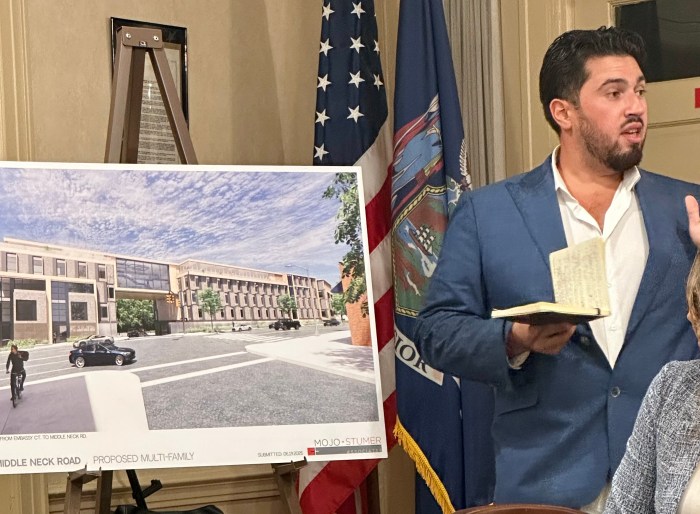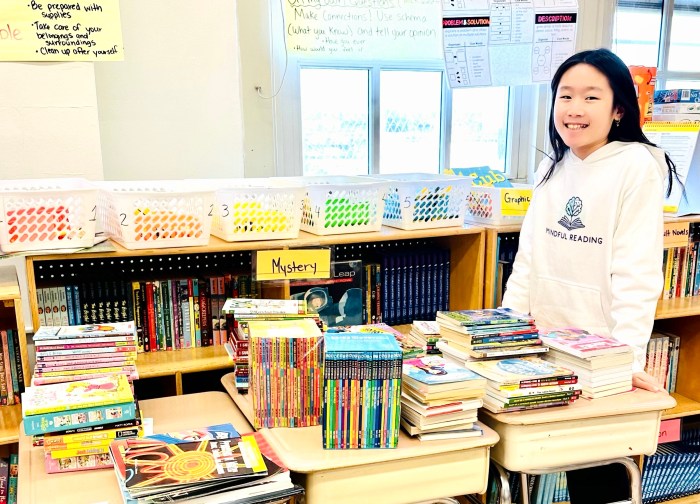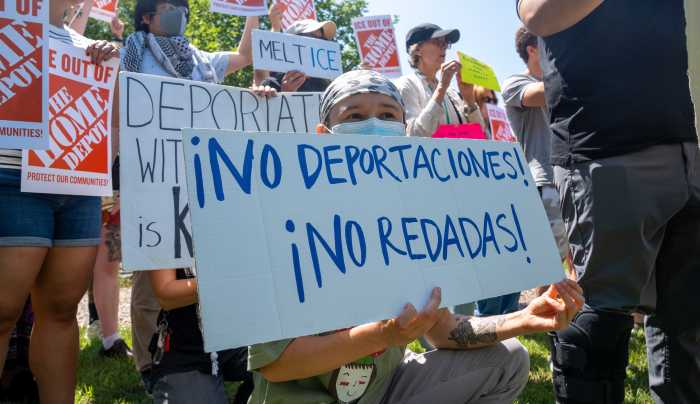 The community can once again turn leftover grease and oil from holiday cooking into fuel this holiday season. The Great Neck Water Pollution Control District (GNWPCD) is continuing its Prevent Clogs from F.R.O.G.s campaign through its annual collection of used cooking grease and oil left over from Thanksgiving. The campaign was launched to alert homeowners of the dangers that fats, roots, oils and grease (F.R.O.G.s) pose to building and residential sewer lines.
The community can once again turn leftover grease and oil from holiday cooking into fuel this holiday season. The Great Neck Water Pollution Control District (GNWPCD) is continuing its Prevent Clogs from F.R.O.G.s campaign through its annual collection of used cooking grease and oil left over from Thanksgiving. The campaign was launched to alert homeowners of the dangers that fats, roots, oils and grease (F.R.O.G.s) pose to building and residential sewer lines.
District residents can schedule a free at-home oil pickup for the day after Thanksgiving, Friday, Nov. 24, from 9 a.m. to 1 p.m., by calling 516-482-0238. District and non-district residents may drop off oil and grease at the district’s 236 East Shore Rd. location between 9 a.m. and 2 p.m. from Monday, Nov. 27, to Friday, Dec. 1.
“The district’s collection program helps enable the most efficient and environmentally friendly way to dispose of both grease and cooking oil,” said GNWPCD Commissioner Jerry Landsberg. “Building awareness throughout the Great Neck community of how to properly dispose of used cooking oil is essential in protecting the local environment.”
Excess grease and oils can be found in meat fats, cooking oils and marinades, as well as shortening, butter, margarine and dairy products. When fats, cooking oil and grease are poured into a sink drain or flushed down a toilet, they congeal and reduce the inside diameter of homeowners’ pipes, causing buildup and eventual blockages—leading to expensive repairs.
“Flushing cooking oil or pouring liquid fat and grease down the drain negatively impacts the district’s entire sewer collection system,” said GNWPCD Commissioner Steve Reiter. “These fatty compounds not only stick to the interiors of pipes in homes and businesses, but also to the district’s pipes that lead to the wastewater treatment facility.”
To recycle your cooking oil, after it cools, collect all excess grease in a sealable container. At pickup, district staff will pour the oil from your deep fryer and other containers into its collection vessel.
Learn more about the Food to Fuel program at www.gnwpcd.net.

































